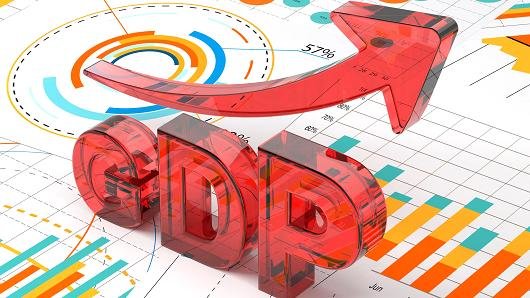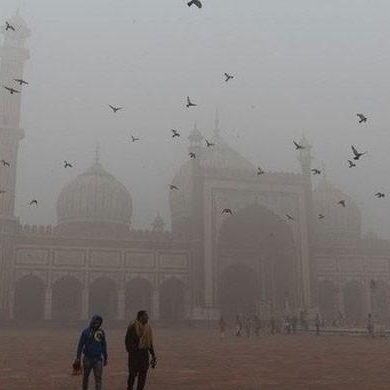Fitch Ratings forecasted Pakistan’s economic growth in the current fiscal year (FY22) at 4.2 percent, compared to the government’s objective of 4.8 percent, owing to favorable monetary and fiscal conditions and rising vaccination rates.
The New York-based agency is one of three main worldwide rating agencies that have stated that net exports will have a negative impact on headline growth since imports will surpass export growth. The report also said that “Improving vaccination rates will buoy private consumption growth while supportive monetary and fiscal conditions will serve as tailwinds for gross fixed capital formation.”
According to the rating agency, the risk to the growth outlook is skewed to the downside. Domestically, given the more virulent delta strain in the community and a still-low percentage of the population that is fully vaccinated, a strong return in Covid-19 infections could have a significant impact on growth.
On the external front, increased security risks posed by extremist groups such as the Taliban might lead to societal unrest and infrastructure devastation. As firms grow unwilling to engage in capacity-building infrastructure, the country’s gross fixed capital outlook and exporting capacities may suffer.
The forecast also considers the strengthening of the Covid-19 restriction due to an elevation in the number of domestic cases which can be seen from Pakistan’s effort in fighting the fourth wave of the Covid-19. However, the government will stick to its plan of imposing smart lockdowns rather than a nationwide shutdown, and the agency does not expect Pakistan’s growth trajectory to be substantially hampered.
Fitch upped its outlook for private consumption growth to 3.6 percent in FY22, up from 3.4 percent before. While this was still a deceleration from the 7.4pc in FY21 due to declining base effects, it stated that improved vaccination rates will boost consumer mood, facilitating recovery in consumer expenditure.
On September 12, 22.8 percent of the population had gotten at least one dose of the vaccine, with 9.6 percent fully immunized. Although we are still a long way from obtaining herd immunity (at least 70% of the population properly vaccinated), these data show an almost seven-fold increase since June.
According to the survey, consumer confidence in the country increased in July, reaching 44.1, its highest level since September 2019. Purchases of important commodities such as passenger vehicle sales have surpassed pre-pandemic levels, indicating that demand is rebounding.
Furthermore, expectations for continued robust remittance growth in the Gulf Cooperation Council (GCC) economies and the European Union will stimulate private consumption.
The agency also increased its prediction for gross fixed capital formation (GFCF) growth to 8% in FY22 from 7.2 percent previously. Improved domestic and external demand forecasts, as well as supportive monetary and fiscal conditions, will drive GFCF. The State Bank of Pakistan’s (SBP) business confidence survey reached its best levels in June since its inception, demonstrating optimism about Pakistan’s corporate prospects.
Increased government development spending will be another driver for growth in this component since the FY22 budget allocated 61 percent more to the Public Sector Development Program than the FY21 budget.
Meanwhile, the rating agency raised its prediction for government consumption growth to 4.3 percent in FY22 from 3.5 percent previously. Subsidies to the electricity sector will help encourage government consumption to reduce the country’s circular debt.
The report also predicted that imports would recover faster than exports. Imports will be aided by rising vaccine demand, with the government recently investing $1.1 billion to purchase Covid-19 vaccinations. Furthermore, the improving economic outlook will almost certainly result in a comeback in consumer expenditure and higher demand for capital goods.
Finally, with petroleum goods accounting for approximately 18% of total import value in FY21, rising fuel prices will increase Pakistan’s import bill even higher. Brent crude oil prices are expected to average $72 per barrel in 2021 and $69 per barrel in 2022, up from $43.20 per barrel in 2020, according to the agency. As a result, it highlighted 8 percent growth in imports for FY22, a revision up from our previous projection of 5 percent growth.



